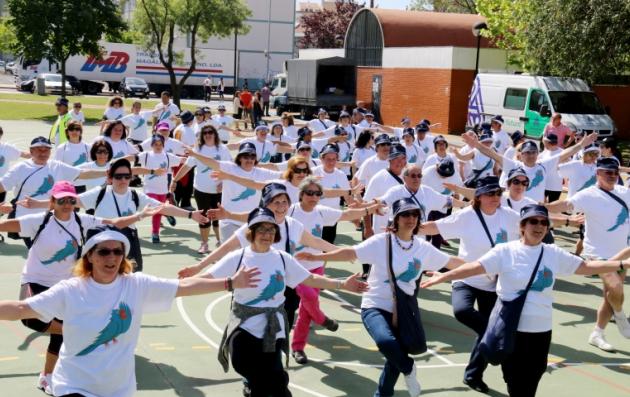Date of label : 02/06/2017
-
Amadora , Portugal
-
Size of city : 175.136 inhabitants
Previously transferred

Summary
“Immigrants are linked to crime and radicalisation”, “Immigrants live off grants from the state” or “foreign children only bring problems to the schools”, are some of the rumours spread about immigrants. “Don’t Feed the Rumour” is part of a communication strategy developed by the municipality of Amadora (PT) since 2014, under the project “Communication for Integration: social networking for diversity (C4I)”, promoted by the Council of Europe.
Its aim is to reach a better understanding of the effects of these rumours on people's lives. Supported by trained anti-rumour agents and the creation of an anti-rumour network, a viral communication strategy has been set up and already showed good results, such as a more positive attitude from native Portuguese regarding immigrants.
The solutions offered by the good practice
By providing methodological knowledge and intercultural integration strategies, including an anti-rumour strategy, this good practice contributes to two fundamental things:
- Awareness of the impact of widespread and unfounded statements about immigrants in the city of Amadora;
- The city communication strategy addresses, in a holistic manner, the potential of its cultural diversity, by combating all forms of discrimination such as racism, intolerance and xenophobia, and promoting inclusion, strengthening community cohesion and well-being.
As part of the work developed by the municipality of Amadora, to create intercultural strategies in order to manage diversity as a resource, this good practice is valuable by the very way it was built: a simple dynamic of providing information based on facts, giving different audiences/groups the opportunity to address issues related to daily life and the way we see the “other”, in a non-conclusive but well-founded perspective, adjusting to different contexts, whether in education, culture, sports, or town planning. The campaign is now part of the municipal strategy, namely the Migrants Integration Municipal Plan. For instance, the campaign's impact on schools triggered the emergence of topics such as immigration and social inclusion, in an open, innovative and creative way, enabling students to explore their feelings, thoughts and behaviour towards cultural differences through art and a process called “positive dialogue”.
Building on the sustainable and integrated approach
"Don't Feed the Rumour" is a practice that has proved complementary and transversal to other measures designed to reduce poverty and social and economic exclusion. It works well in raising awareness of widespread misconceptions, and negative attitudes towards immigrants in the city, addressing this threat on a well-grounded and positive basis, and in a holistic manner, bringing together decision makers, civil society, private sector, and different government levels. Part of the Lisbon Metropolitan Area, Amadora is mainly residential and has a high population density. Its weaknesses (a brief socioeconomic profile): lowest income index in the region; fourth municipality of the region with the highest percentage of lower and lower middle classes; compared to neighbouring cities, a high percentage of inhabitants receiving social support; percentages among the highest, of poorly educated, and lowest of the more educated population in the region; higher unemployment rate among young people up to 34 years of age in the region. Since 2001, there has been a 33% increase in the number of immigrants. Many more people are born with an immigrant background, and many are living in precarious housing areas. In this case, one of the identified threats is precisely the less favourable perception of the city by the internal and external population, associating Amadora with African immigrants, crime, poor housing, poverty, and inequality.
Based on a participatory approach
The participatory approach was in fact one of the basic principles of the strategy. A local anti-rumour network was set, and about 75 organisations of the Amadora Social Network, including organisations that work directly with immigrants, and the immigrants themselves, were involved at different moments:
- Mapping of the local rumours;
- Training of anti-rumour agents that united participants from different areas of intervention in the municipality, such as education, social intervention, culture, sport, intercultural mediation. These agents train local organisations: local associations, schools, citizens and public security (an “Anti-Rumour Agent Guide” was produced);
- Involvement of five Intercultural Mediators (working for the municipality) in the organisation of school workshops;
- Debates with students, promoted by teachers, in several schools;
- Video production;
- Cultural and sports activities oriented towards diversity and interculturality, including a Municipal Paper Kite Contest (an opportunity to debate, between children and students, diversity, prejudice and discrimination through art);
- Diversity workshops: "What is the true colour of the clouds?" (using different tools to read the world avoiding rumours, stereotypes, prejudices and discrimination “glasses”, and a Solidarity Walk and Run For Diversity.
What difference has it made?
In Amadora, the inhabitants' and workers' attitude regarding immigrants that live, study and /or work in the municipality were analysed by a university team before the beginning of the campaign, and after some activities and events had been held. Some results: participants who took part in at least one activity, showed more positive attitudes towards immigrants than participants who only heard about the campaign or did not know about it at all. More educated participants tended to express more positive attitudes towards immigrants than those with less education. However, the opportunity of raising awareness of the effects of rumours and prejudices on people's lives, was crucial for the project team. On the other hand, the high interest, involvement and participation of local organisations and of the immigrants within the project made a wider approach to the subject possible. During the development of the “Don’t Feed the Rumour” campaign, it was possible to involve about 75 organisations in the project, and reach about 2,500 persons. However, the best evidence of the campaign's impact is the introduction of the topic into decision-makers' agendas. Due to this, diversity and interculturality became themes of big events in Amadora, and the fight against prejudice a measure within the Municipal plan for Migrant Integration.
Why should other European cities use it?
The anti-rumour approach can be adapted to different cities in Europe that are dealing with the challenges of diversity, and the impact of their own strategies can be seen on improving perceptions of immigrants. Within the Communication for Integration Project (C4I), the participant cities (Amadora, Loures, Bilbao, Sabadell, Limerick, Botkyrka, Nuremberg, Erlangen, Lublin and Patras) produced their own communication strategy. The original anti-rumour strategy was launched by the city of Barcelona. In Amadora, the campaign is running, and was also presented to the partners of the Arrival Cities Network (URBACT III) in its first phase, and included in the report of the first Transnational Workshop in the second phase of the project. Last year, SIE invited the "Don't Feed the Rumour" project, as a case study of an innovative approach to migrant integration, at the event "A Brighter Future for Europe: Innovation, integration and the migrant crisis". In May 2016, the anti-rumour strategy was presented at the 2nd Portuguese Intercultural Cities Network Workshop and in September, the Council of Europe project “Building Inclusive Societies: Intercultural Cities” launched a call that aimed at co-funding local projects implemented by municipalities which are member of the Portuguese network of IC, and aimed at creating social networks addressing misconceptions of persons from various backgrounds.
-
469_Amadora_Gpsummary.pdf(PDF, 279Ko)

